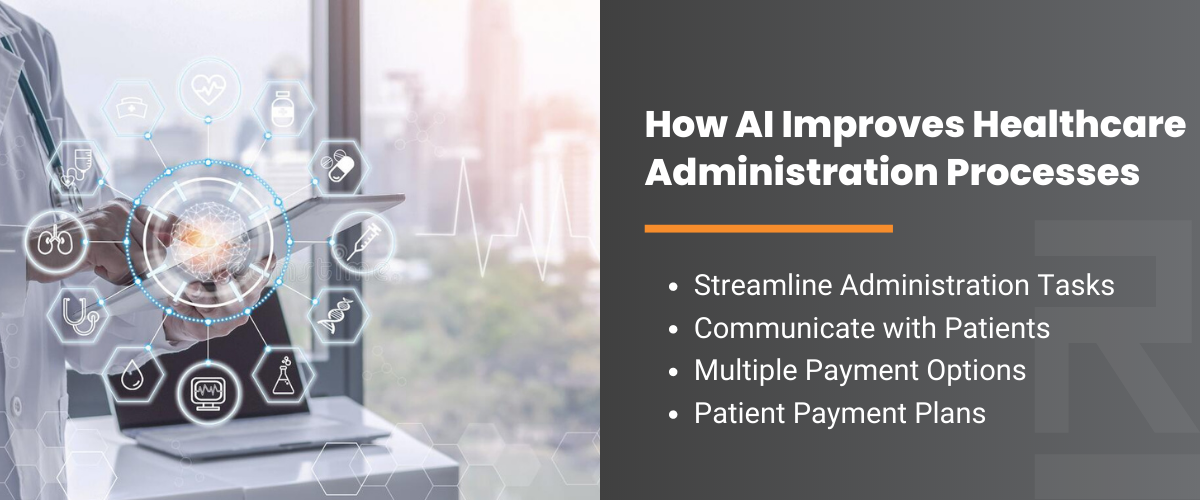Artificial Intelligence (AI) technology is improving the future of healthcare. It took off in the 1970s, notably with Internist I, an AI computer system that used a powerful ranking algorithm to assist doctors in reaching a diagnosis. Since then, the expansion of AI has made life-changing discoveries and helped providers offer better care to their patients.
AI Applications in Healthcare
AI applications like IBM Watson Imaging Patient Synopsis can quickly extract and organize relevant data for radiologists. The U.S. Department of Veterans Affairs partnered with an AI company to create a system that diagnoses a deadly kidney disease up to 48 hours faster than a human could. Researchers from Japan recently developed an AI program that analyzes cell images to predict the therapeutic effect of certain drugs. Medical schools utilize virtual patients, and Moxi, the robot, can be found in a Philadelphia-area hospital, performing non-clinical tasks so nurses can focus on their patients. The CDC says AI was even used as a research and public health tool at the height of the COVID-19 pandemic.

How AI Improves Healthcare Administration Processes
But what’s available to improve the administrative side of healthcare? Solutions from Rectangle Health can complement the AI tools used for clinical purposes and make office managers more efficient.
Streamline Administrative Tasks
Practice Management Bridge®, Rectangle Health’s flagship solution, can help you streamline administrative tasks to give your patients the best possible experience. According to a study by Hobson & Company, Practice Management Bridge has the potential to reduce manual billing time by 20%, collecting and payment posting time by 30%, and manual refund processing time by an overwhelming 90%.
Communicate with Patients
There are benefits for patients, too. With Practice Management Bridge, office managers can communicate with patients via text messages to remind them of office protocols, payments, or upcoming appointments. It also offers digital registration forms allowing fast, accurate, and contactless check-ins.
Multiple Payment Options
Practice Management Bridge also assists front-office efficiency with Point of Care payments, which enables providers to accept all forms of payment. This helps practices receive more office collections by offering traditional and contactless payment experiences. Our system lets you skip capturing a receipt signature, allowing for a secure and more convenient payment option for your patients. Our solution can also offer contactless payments, such as Apple Pay and Google Pay. If your patients prefer to pay for an appointment through their mobile device, we offer a Text-to-Pay option, where a link to an online payment portal can be sent. A card-on-file payment capability ensures your practice is paid quickly with securely stored payment information, saving you and the patient time during checkout. These features can improve the quality of your service and increase overall patient retention.
Patient Payment Plans
Not all patients can make steep one-time payments, and not all healthcare practices offer a practical tool that assists those patients. patient financing makes flexible on-time payments possible to all patients who walk through your practice. This alleviates stress on the office manager when confronted with overdue or missing payments, builds loyalty among existing patients, and attracts new patients who may be in a difficult financial situation.
Learn About Healthcare Tools Available from Rectangle Health
The future of healthcare is efficient both during the appointment and at the front desk. Rectangle Health can help practices find efficiencies beyond the AI tools that improve care.
Learn more about the benefits of Practice Management Bridge for your practice, or request a demo today.
References
- Narayanan K. (2021, August 4). AI in Medicine and Healthcare – A Brief History & Implications for the Future. Analytics India Magazine. Retrieved from https://analyticsindiamag.com/ai-in-medicine-and-healthcare-a-brief-history-implications-for-the-future/
- Hardin Memorial Health – AI solution informs radiologists with deep patient insights. IBM. Retreived from https://www.ibm.com/watson-health/merative-divestiture
- (2022, July 14). AI analyses neuron changes to detect whether drugs are effective for neurodegenerative disease patients. NU Research Information. Retrieved from https://www.nagoya-u.ac.jp/researchinfo/result-en/2022/07/20220714-01.html
- Combs, C. Donald., Combs, P. Ford. (2019, February). Emerging Roles of Virtual Patients in the Age of AI. AMA Journal of Ethics. Retrieved from https://journalofethics.ama-assn.org/article/emerging-roles-virtual-patients-age-ai/2019-02
- (2022, May 14). Meet ‘Moxi’ – Robotic Hospital Helper to Give Nurses More Time to Do What They Do Best. Christiana Care News. Retrieved from https://news.christianacare.org/2022/05/meet-moxi-robotic-hospital-helper-to-give-nurses-more-time-to-do-what-they-do-best/
- Khoury, M., Rasooly, D. (2022, March 1). Artificial Intelligence in Medicine and Public Health: Prospects and Challenges Beyond the Pandemic. Centers for Disease Control and Prevention. Retrieved from https://blogs.cdc.gov/genomics/2022/03/01/artificial-intelligence-2/#:~:text=AI%20and%20Health%3A%20From%20Medicine%20to%20Public%20Health%20in%20the%20Pandemic%20Era



